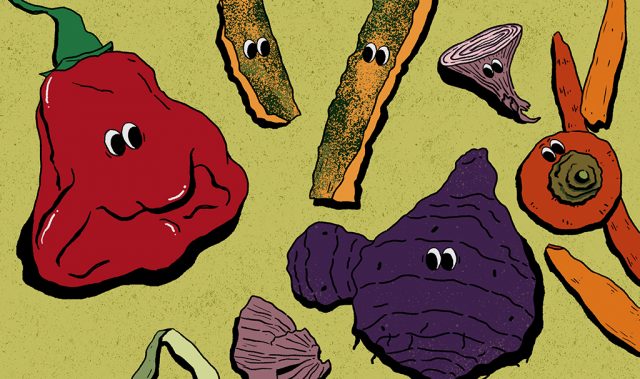
AsianScientist (Sep. 13, 2013) – Extracts from kangkong (Ipomoea aquatic), a popular ‘poor man’s vegetable’ that grows everywhere in the Philippines and across Southeast Asia, may have the potential to treat Alzheimer’s disease.
This was the finding of a group of recent pharmaceutical graduates from San Pedro College in Davao City — one of the Philippines’ foremost centers for screening indigenous plants for their medicinal properties.
In August, the team’s study was awarded the prize for the most outstanding undergraduate thesis in herbal medicine by the Philippine Council for Health Research and Development and the pharmaceutical firm Gruppo Medica. The award is intended to motivate students and schools to view undergraduate theses as an opportunity to contribute to research with potential for practical application or commercialization.
Kangkong, also known as swamp cabbage or water spinach, is a fast-growing and easily cultivated semi-aquatic plant that thrives in all conditions and throughout the year. Its availability makes it a cheap and popular leaf vegetable in the Philippines and in many countries in South-East Asia. It is also a common fodder for cattle and pigs.
“Although there are studies identifying kangkong with antiulcer and antidiabetic properties, this is the first study to associate it with anti-Alzheimer’s properties,” says research adviser Lourdes Go-Bangayan. “The students’ thesis involved dosage formulation, for use as medicine,” she adds.
Justin Shinn Lu Ng, the study’s lead researcher, adds that the results show that kangkong’s alkaloid extract may be used to treat the symptoms of Alzheimer’s and to prevent the disease’s progression.
Alzheimer’s has two causes: neurodegeneration due to the deterioration of nerve cells, and the degradation of acetylcholine, an organic molecule that acts as a vital neurotransmitter in memory and body and organ function, Ng explains.
“We screened [kangkong] for alkaloids and then identified the active component of the plant with pharmaceutical potential responsible for preventing acetylcholine degradation that would lead to Alzheimer’s,” Ng says.
Current medicines used to treat Alzheimer’s symptoms compensate for the degradation of acetylcholine.
An experimental design was used in comparing the acetylcholine-increasing effects of the kangkong alkaloid extract with Rivastigmine, the current drug of choice in the treatment of Alzheimer’s.
“We found comparable effects and results,” Ng says. “The next step would be to confirm the accuracy of the research results with further research,” Go-Bangayan says. “After that, we would recommend clinical trials.”
——
Source: Science and Development Network; Photo: Who Log Why/Flickr/CC.
Disclaimer: This article does not necessarily reflect the views of AsianScientist or its staff.












